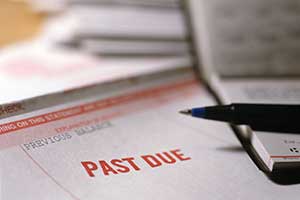
The Federal Reserve Board (FRB) keeps talking about raising interest rates, and if it does, it sets off a chain reaction of events affecting everything from how many people have a job to what they pay for groceries. If you have a credit card or savings account, are invested in stocks or bonds, invest in a 401(k), or you’re thinking about buying a home or car, changes in interest rates can cost or save you money. It’s important to understand why and act accordingly.
What the Federal Reserve Does
Congress established the Federal Reserve (also known as the Fed) in 1913. The Fed is supposed to keep our economy healthy and make sure our banking system remains sound. It tries to avoid “boom and bust” extremes and control inflation by raising or lowering interest rates. In general, if the economy is slow, the Fed tries to speed it up by lower interest rates, so that borrowing is easier and less expensive. If the economy is growing too fast, the Fed wants to slow it down, so it raises interest rates, which makes borrowing harder and more expensive.
Since it seems likely the Fed will be raising rates soon, are there things you can do to prevent being hurt by rising interest rates? The skilled and seasoned Ohio bankruptcy attorneys at Fesenmyer Cousino Weinzimmer offer suggestions to help you understand what rising interest rates mean so you can make wise financial decisions, whatever the Fed decides to do.
What Happens When the Fed Changes Interest Rates?
When the Fed raises or lowers interest, banks raise or lower their prime rate – the rate they charge their best customers – accordingly, and this affects mortgage rates, car loans, business loans, and other consumer loans.
If interest rates go higher, you can expect to see the following:
- Some things go up — prime rates, mortgage rates, car loan rates, money market rates, credit card rates, CD rates, all will be higher. If you need to borrow money, you will pay more. If you have money to put in the bank, you will get more interest.
- Some things go down — Stock market prices, business profits, consumer spending, business spending, home sales, and borrowing go down because it costs more to borrow money.
However, if the Fed lowers interest rates, you can expect the opposite to happen. This means:
Prime Rates, mortgage rates, car loan rates, money market rates, credit card rates, CD rates, all go down. It costs less to borrow money, so businesses and consumers borrow more and buy more. People put less money in the bank.
Stock market prices, business profits, consumer spending, business spending, home sales, and borrowing go up. More money is put into the stock market since banks aren’t paying much interest. Business spending and profits go up because it costs less to borrow money.
What You Should Do
If rates go up, there are things you should be aware of and adjustments you can make that will help your financial situation:
- Examine whether to buy big-ticket items: Rates are still low and probably won’t jump much if the Fed raises interest rates, but mortgages and loans will go up. Pay attention, start looking at your choices, and prepare to make the big decisions.
- Consider saving more to get more interest.
While banks don’t rush to raise interest rates, money markets and certificates of deposit should slowly start to pay more. - Be aware that stock markets could get more volatile.
A Fed rate hike could trigger more volatility in stock and bond markets. In recent years, low interest rates have made bonds relatively unattractive, and the stock market comparatively more attractive. When rates go up, some of that money will tend to flow back into bonds and away from the stock market. - Be aware that the dollar could go up versus global currencies.
When interest rates rise, U.S. Treasuries and corporate bonds become more attractive to foreign investors. This raises demand for the dollar and causes it to appreciate. A higher dollar could hurt U.S. companies that sell products abroad, as U.S. products become more expensive. Countries with loans in dollars have to pay back more, and if developing countries find their economies in trouble, it will eventually hurt U.S. trade, manufacturing, and economic growth. - You may need to buy less.
Loans will cost more, so a house that was affordable with a 3 percent mortgage might be unaffordable at 4 percent, and you may not be able to afford the payments on a new car. - You could lose your job.
If people slow their buying, companies making houses, cars and consumer goods will not be able to sell as many. These businesses then slow investment and hire fewer workers. Workers have less power to demand raises, and higher unemployment leads to less spending.
Contact Us
In general, interest rate increases make life a little bit harder for borrowers and a little bit easier for savers. The Fed aims to change slowly, to avoid putting the economy in shock, and it’s best to prepare for rate increases ahead of time.
If you are having difficulty managing your finances, it makes sense to consult with a debt relief lawyer who knows the intricacies of the courts, the judges, and the system. The skilled and seasoned Ohio bankruptcy attorneys at Fesenmyer Cousino Weinzimmer understand what you’re going through and offer a free consultation to evaluate your financial situation and develop a plan that’s best for you.
Contact the experienced and compassionate Ohio debt-relief attorneys at Fesenmyer Cousino Weinzimmer for help, information, and support. We will evaluate your entire financial situation, discuss your options, and help you decide on the path to a brighter future that makes sense in your individual case.
Call one of our conveniently located office branches at 614-228-4435 (Columbus), 937-222-7472 (Dayton), or 877-654-5297 (Cincinnati) or email today to set up your free consultation so we can determine what debt relief solutions will work best for you.


